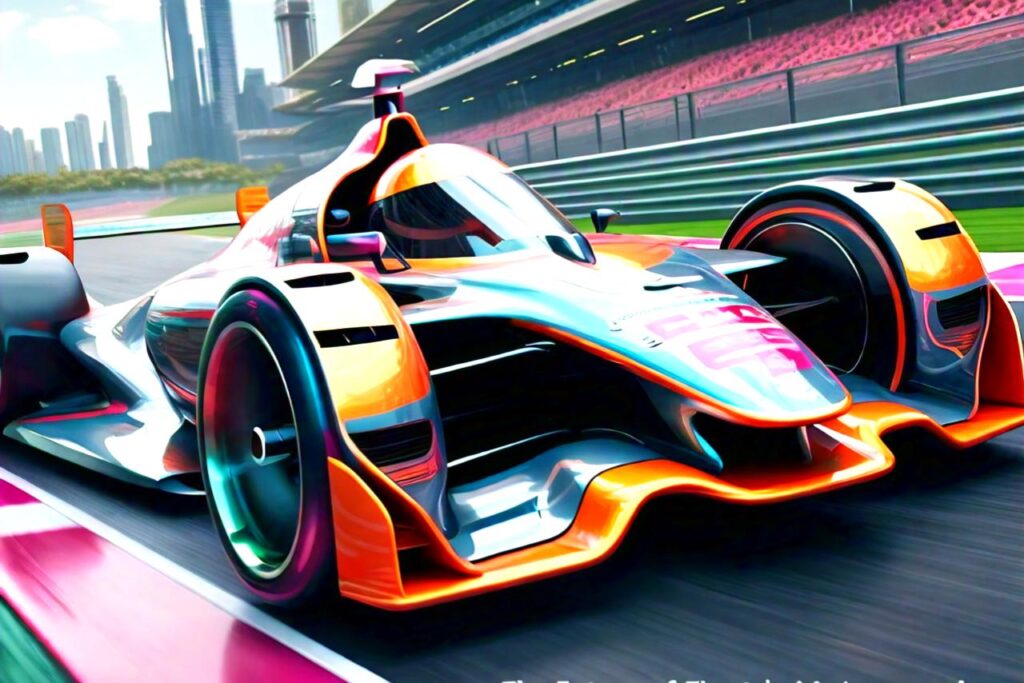Introduction
The roar of engines, the smell of burning rubber, and the adrenaline rush of racing—motorsports have long captivated audiences worldwide. But as the planet faces unprecedented environmental challenges, the racing industry is shifting gears. Enter electric motorsports, a bold new frontier promising high-speed thrills without leaving a massive carbon footprint. Is this the sustainable future of racing? Let’s dive into it.
What Are Electric Motorsports?
Electric motorsports focus on races powered entirely by electric vehicles (EVs). Unlike traditional motorsports reliant on internal combustion engines, electric racing uses advanced battery technologies to deliver lightning-fast speeds.
The concept took off with the debut of Formula E in 2014, which became a groundbreaking league entirely dedicated to EVs. Since then, the movement has gained momentum, with leagues like Extreme E and E1 Series making waves globally.
Why Sustainability Matters in Motorsports
Motorsports have often faced criticism for their environmental impact, from excessive fuel consumption to high carbon emissions. Traditional racing also demands significant resource extraction, adding to its ecological toll.
Electric motorsports aim to rewrite this narrative. By eliminating fossil fuels and promoting renewable energy, these leagues reduce emissions while fostering innovation in green technologies.
The Evolution of Electric Motorsports
Initially, electric motorsports struggled to gain traction. Challenges like limited battery capacity and skepticism from purists hindered growth. However, technological breakthroughs have catapulted the industry forward.
The introduction of Gen2 Formula E cars in 2018 showcased improved speed, battery life, and design, marking a turning point. Now, electric racing leagues are growing exponentially in popularity.

Major Electric Motorsports Leagues
Formula E
As the flagship electric motorsport league, Formula E delivers exhilarating races in urban circuits worldwide.
Extreme E
Combining EV technology with off-road racing, Extreme E raises awareness about climate change by hosting events in remote, endangered ecosystems.
E1 Series
The world’s first electric powerboat championship, E1 Series, brings sustainable racing to the water.
Technological Innovations in Electric Racing
Electric motorsports are a hotbed of innovation. Advanced lithium-ion batteries power races lasting an entire session, while regenerative braking systems convert kinetic energy back into stored electricity. Aerodynamic designs further optimize efficiency, pushing performance boundaries.
Impact on Traditional Motorsports
Electric racing is reshaping the motorsport landscape. Major leagues like Formula 1 are incorporating hybrid technologies to stay relevant. The success of electric motorsports is encouraging traditional leagues to rethink their environmental strategies.
Sponsorship and Investment in Electric Racing
Eco-conscious brands are flocking to electric motorsports, aligning their values with sustainability. Investment is pouring in as businesses recognize the financial potential of these leagues, ensuring their longevity.
Challenges Facing Electric Motorsports
While promising, electric motorsports face hurdles like battery production’s environmental cost and the high expense of building EVs. Accessibility remains a concern, especially in regions lacking infrastructure.
The Fan Experience in Electric Motorsports
Electric motorsports offer unique fan experiences. Silent races enable immersive sounds of tires and wind, while interactive technologies enhance engagement. Though different from traditional motorsports, it’s an experience fans are growing to love.
Electric Motorsports and Urban Racing
City circuits bring racing closer to fans, reducing travel emissions and promoting urban sustainability. Events like Formula E demonstrate how urban racing can integrate with environmental goals while delivering high-octane action.
Impact on Automotive Innovation
Racing has always driven automotive advancements, and electric motorsports are no exception. Technologies developed on the track often find their way into consumer EVs, accelerating the shift towards sustainable transportation.
Global Reach and Inclusivity
Electric racing is expanding into new territories, promoting inclusivity and creating opportunities for underrepresented talent. Developing countries are embracing this sustainable alternative, further broadening its global appeal.
Future Trends in Electric Motorsports
The future holds exciting possibilities, from autonomous electric races to AI-driven strategies. These advancements promise to redefine racing, making it even more sustainable and thrilling.
Conclusion
Electric motorsports are not just a trend—they’re a revolution. By prioritizing sustainability without sacrificing excitement, they offer a glimpse into the future of racing. Whether you’re a fan or a skeptic, it’s hard to deny the potential electric motorsports have to change the game.
FAQs
- What is the significance of electric motorsports?
Electric motorsports showcase sustainable innovation, offering eco-friendly alternatives to traditional racing. - How do electric motorsports impact the environment?
They significantly reduce carbon emissions and promote renewable energy technologies. - What are the major challenges?
Challenges include battery sustainability, cost barriers, and infrastructure limitations. - Are traditional motorsports dying out?
Not necessarily. Traditional motorsports are adapting by incorporating hybrid and sustainable technologies. - What’s next for electric racing?
The future includes autonomous racing, AI-driven strategies, and even greater global inclusivity.